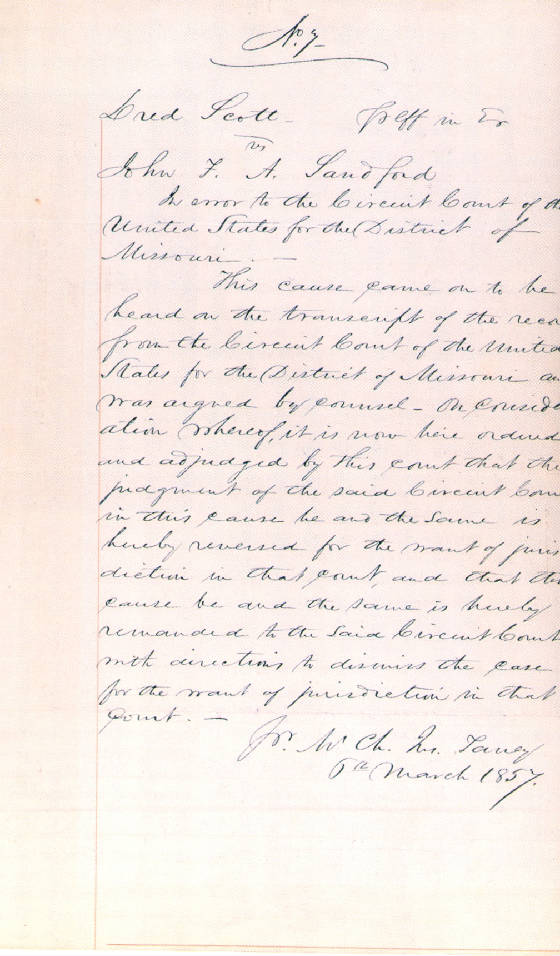|
|
An important constitutional question was whether the Congress had the power to regulate slavery in the territories. For decades, this power was a given, as the Missouri Compromise line demonstrated. Some Southerners however, led by John C. Calhoun, argued that those who owned property in the form of slaves had rights which had to be maintained and that no such lines could be constitutional. The Supreme Court settled this argument for a time with its ruling in the case known as Dred Scott v Sandford.
.
|
|||||||||||||||

